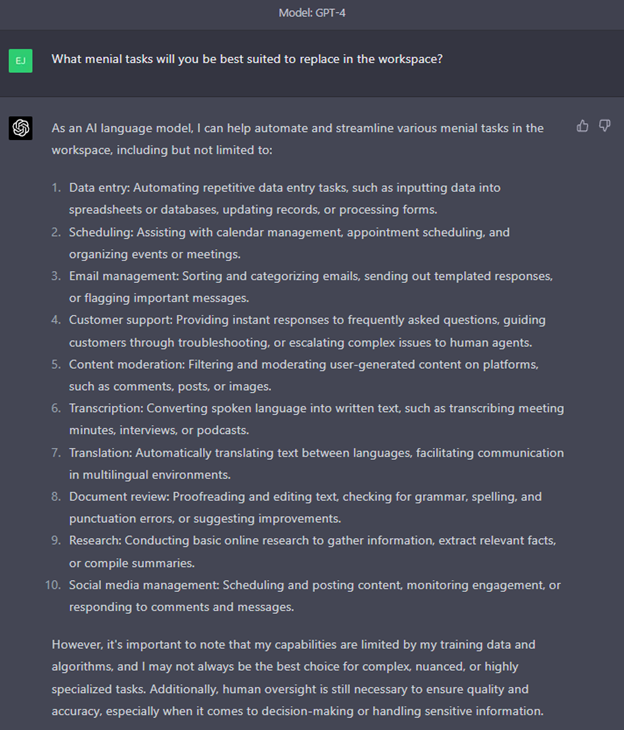By Eric Jensen, CTO and Co-Founder
As an AI practitioner, I am often asked about where the technology is headed and what industries and parts of our society it will ultimately impact the most. The answer is particularly tricky because there are different kinds of AI. At the moment, these conversations are centered on “generative AI” and its new class of models that are very good at creating convincing content, whether it be textual or graphical in nature.
Each time I am asked these questions, I am reminded of the situation in late 2014 when Tesla started equipping their cars with hardware to support automated driving. I have the luxury of meeting and interacting with many influential thinkers, and my business at the time was heavily involved with private equity in the education industry. Back then, many of these sharp individuals were proud to announce they were investing in driverless services that would revolutionize the planet “within five years”. Nearly a decade later, we know they got it wrong: they were overly optimistic about the timetable for systemic change.
Ford Motor Co. CEO Mark Fields predicted in 2015 that fully autonomous vehicles would be on the market within five years, one of many predictions that driverless cars were just around the corner.
But investor patience has been wearing thin for self-driving technology, which is taking longer and costing more to get right than was anticipated.Kris B. Mamula, ProQuest Information & Learning, Feb 26, 2023
But why did these very smart and connected people get it wrong? While they were able to make a great deal of causal connections in their strategy, they assumed that an awful lot of challenges in edge cases, liabilities, and customer desires would be steamrolled by Moore’s Law or innovation generally.
Today, I think we may be similarly ahead of ourselves with regards to generative AI. The developments that everyone is talking about today don’t mean the end, within five years, of writing code, of doing market research, or of many other professions that require creativity or deductive reasoning. That said, this technology will with certainty change the way we interact with computers as part of nearly all of those jobs.
It’s fun to brainstorm the details on how these interactions might change. We’ve all become accustomed to tools that prompt us with the next word to type – a feature that’s necessary on small/clunky virtual keyboards, and occasionally distracting on your desktop or laptop (as it was for me, while writing this blog). But when the “suggestions” become much more substantial they will not be so easy to streamline or curate. Will we need to adopt a version control for press releases that anticipates AI hallucination?
Logically, the more creativity that is required, the more fraught it may be to ask AI to perform the job. But what of more menial tasks? Which of those could be handled by AI? Rather than opine on my own, I’ve taken a chance and asked ChatGPT that question directly:

Not bad, and with a few responses that I didn’t expect. These could be described as jobs that nobody wants to do and that can be assigned to AI with a minimum of human direction. And notably, the “stakes” are not very high for many of these tasks if the AI is applied responsibly.
Rather than assuming a dystopia is upon us, my brilliant peers, I humbly suggest we refocus our thinking about AI to ending menial tasks like these in our daily activities. That to me is quite exciting and hopeful, and allows us to set aside the gloomy stories predicting total human replacement. At least, “within five years”.